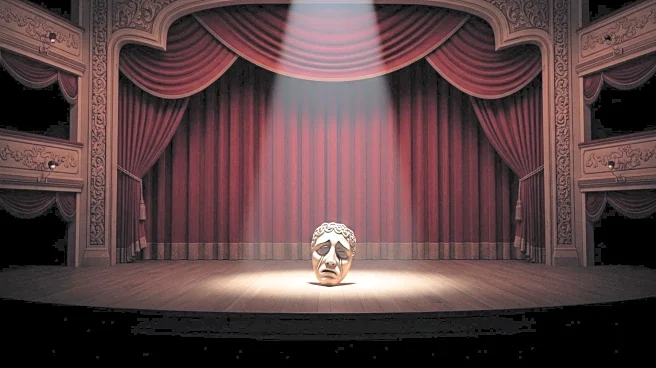What's Happening?
Sondra Radvanovsky has captivated audiences with her portrayal of Medea at the Lyric Opera of Chicago. The opera, directed by David McVicar, is a production of Luigi Cherubini's 1797 work, which is based on the Euripides play. Radvanovsky's performance is noted for its emotional depth and intensity, capturing Medea's chaotic passion and tragic inevitability. The production features a striking design, including a Munch-like depiction of Medea and a colossal mirror that enhances the dramatic effect. The opera runs through October 26, offering audiences a chance to witness Radvanovsky's powerful interpretation of a role long associated with Maria Callas.
Why It's Important?
Radvanovsky's performance in 'Medea' is significant as it showcases the enduring power of opera to convey complex human emotions and narratives. Her portrayal brings a fresh perspective to a classic role, highlighting the timeless themes of betrayal and passion. The production's innovative design and direction contribute to the opera's impact, making it a must-see for enthusiasts and newcomers alike. This performance underscores the importance of opera in cultural discourse, offering a platform for exploring deep emotional and societal issues.
What's Next?
The Lyric Opera of Chicago's production of 'Medea' continues to run until October 26, providing further opportunities for audiences to experience Radvanovsky's acclaimed performance. As the opera season progresses, the Lyric Opera may continue to explore similar themes and productions, potentially attracting new audiences and fostering a deeper appreciation for opera. The success of 'Medea' could influence future programming decisions, encouraging the inclusion of more challenging and emotionally resonant works.
Beyond the Headlines
Radvanovsky's portrayal of Medea not only highlights her vocal prowess but also raises questions about the role of women in opera and the arts. Her performance challenges traditional interpretations, offering a nuanced view of Medea's character that resonates with contemporary audiences. This production may inspire discussions about gender roles and representation in the arts, encouraging a reevaluation of classic works through modern lenses.












